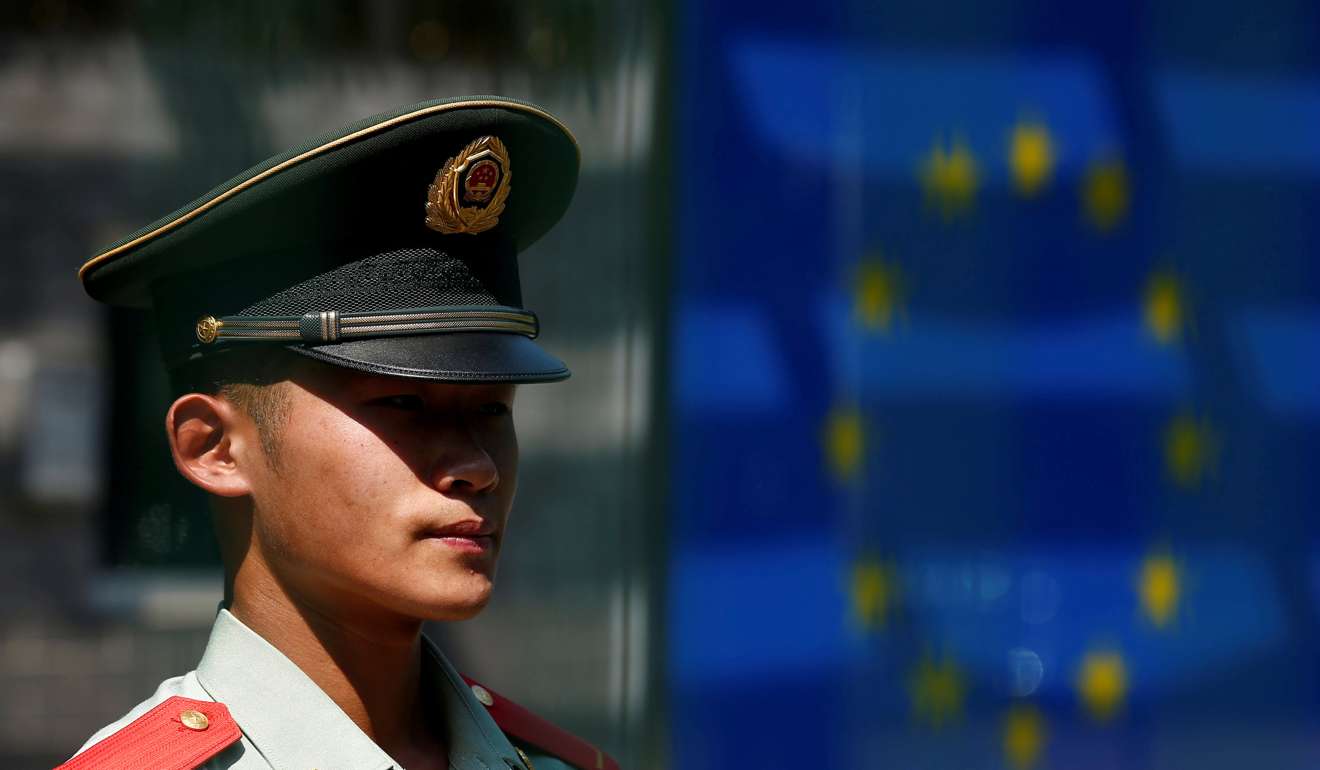
Analysis | EU and China will try to get globalisation back on track at summit
Top diplomats from the two sides will meet in Beijing from April 18 to 20
Top diplomats from China and the European Union will chart out a course to maintain globalisation and offset the impact of populism and protectionism when they meet next week.
State Councillor Yang Jiechi and Frederica Mogherini – the EU’s foreign affairs representative and the vice-president of the European Commission – will lead the 7th EU-China Strategic Dialogue in Beijing from April 18th to 20th.
It will be the first high-level exchange between these two of the world’s three biggest economies since Donald Trump took office in the White House and Britain began its “Brexit” procedures to leave the EU.

The top diplomats from the two sides would discuss cooperation on global challenges like climate change as well as regional and security issues in preparation for the 19th EU-China summit in Brussels, officials from both sides said earlier. A date has not yet been set for that meeting.
Analysts said getting economic globalisation and political multilateralism back on track was the biggest common interest between China and the EU, and would be the central topic of this month’s dialogue.
“China and the EU need each other in many aspects in present circumstances,” said Wang Yiwei, a European Studies specialist at Renmin University.
“The EU is anxious about the rise of Trumpian ideas,” he said, adding that free trade, open markets and multilateralism had been central to the bloc since its inception.
President Xi Jinping’s speech at Davos in January advocating globalisation and rejecting protectionism had aligned China with the EU, while Xi’s “One Belt, One Road” initiative needed the participation of the Europeans, Wang said.
The EU will be also dealing with a number of internal challenges and uncertainties. Following the Brexit, a surge of populism and xenophobia across Europe will be gauged in upcoming elections in the continent’s major countries, including France and Germany. This was sure to be a concern in the talks between Yang and Mogherini, said Ding Chun, director for the Centre for European Studies at Fudan University.
Regions at high risk for major conflicts, including Syria and North Korea, would also be featured in the upcoming dialogue, as would counterterrorism, Ding said. “Maintaining world peace and restoring stability in these regions are also critical to both sides.”
Climate change also unites China and the EU, as both have pledged to continue to uphold and implement the Paris Agreement on emissions reductions even though the US is poised to pull out of the deal under the Trump administration.
Making progress on finalising the core items of a bilateral investment treaty between the EU and China, known as the Comprehensive Agreement on Investment, would be a priority this year, the EU’s envoy in Beijing said earlier.
“The EU has to provide high quality public goods for its member states, to strengthen the bonds of the union. This demand could work as a driving force for them to push for a good bilateral investment treaty and other economic cooperation with China, as the TTIP [Transatlantic Trade and Investment Partnership] is almost dead with the US,” said Cui Hongjian, the director of European studies at the China Institute of International Studies.
Despite Chinese and European leaders’ shared public criticisms of protectionism, trade disputes between the two sides are not uncommon. Joerg Wuttke, the president of the EU Chamber of Commerce in China, has said that trade and investment between the two had not been reciprocal and was “below potential” due to China’s lack of market openness.
Meanwhile, Beijing is unhappy about Europe’s rejection of its status as a market economy, and its frequent anti-dumping cases against China. And even if right-wing candidates lose in upcoming national elections in Europe, protectionist trends are bound to have an impact on the policies of the new governments.
“Towards China there is likely to be stronger protectionism,” Ding said.

